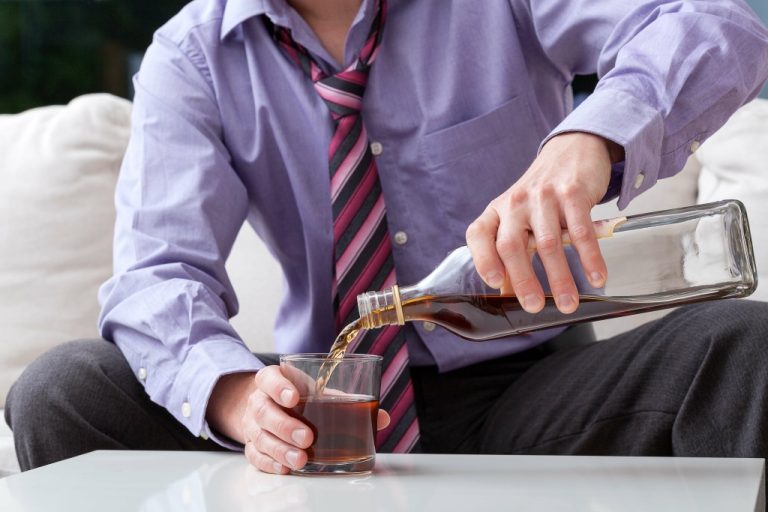Sober living
Why You Should Limit Alcohol Before Bed for Better Sleep
It should not be used in place of the advice of your physician or other qualified healthcare providers. When alcohol has been introduced to the sleep cycle, the functions of the brain are impeded, and the cycles become disrupted. This sleep cycle disruption is what causes the person to feel tired and “fuzzy” the next day and can lead to further sleep issues, such as insomnia or alcohol addiction over time. In the present study, we showed that a large sample size allows for a more representative and comprehensive analysis of the relationship between sleep and the prevalence of pre-sarcopenia.
How Long to Wait Between Drinking Alcohol and Bedtime
- Even though alcohol can make you feel sleepy, it may impact your overall quality of sleep.
- In the present study, we showed that a large sample size allows for a more representative and comprehensive analysis of the relationship between sleep and the prevalence of pre-sarcopenia.
- Many people report increased daytime energy levels, better mood, and enhanced cognitive function.
- Gill is the owner of the Sober Powered Media Podcast Network, which is the first network of top sober podcasts.
- Adopting healthy sleep habits, such as maintaining a consistent sleep schedule, creating a relaxing bedtime routine, and optimizing the sleep environment, can accelerate the recovery process.
This can lead to fragmented sleep, frequent awakenings, and a decrease in overall sleep quality. Additionally, alcohol can worsen snoring and sleep apnea, further disrupting sleep patterns. Specifically, alcohol consumption has been found to alter the normal sleep cycle by reducing REM sleep and increasing https://ecosoberhouse.com/ the likelihood of multiple awakenings throughout the night. This disruption can result in a decrease in sleep efficiency and an increase in sleep-related problems. Research also suggests that alcohol-induced sleep disorders may include sleep apnea and potentially contribute to sleepwalking.
Seizures and Sleep: How Long to Wait Before Resting

Univariate analysis was used to assess the association between sleep duration and sleep quality with pre-sarcopenia across sex-specific populations. Stratified analysis and adjusted multivariable regression analysis were performed to explore associations between sleep quality and the pre-sarcopenia risk. Statistical significance was defined as a P-value of 0.05 for all analyses performed using R 4.1.2. • Public health policies should prioritize improving sleep quality over merely focusing on sleep duration to more effectively prevent pre-sarcopenia in adults aged 20–59. Naps decrease your overall amount of sleep debt, making it more difficult to fall asleep again at night at the proper time.
Medium-term sleep recovery (Months 1-
Psychological withdrawal symptoms often include anxiety, depression, and intense cravings. In cases of excessive, long-term alcohol use, more severe symptoms such as confusion, and convulsions may occur. Delirium tremens is the most severe form of alcohol withdrawal and occur in a small percentage of individuals. Understanding the connection between alcohol and sleep, as well as the potential pitfalls of relying on alcohol for sleep, can help individuals make informed choices about their sleep habits.

How I Get My Mom to Bed
I stopped taking it after about a week because it made me feel extremely groggy the next day. My own continuing insomnia gave me the motivation to slowly discover the gentler remedies contained on this list. This is a tricky process, because everyone’s biochemistry is different. Once we grasp the importance of biochemical balance, we can see why band-aid approaches to falling asleep RIGHT NOW (e.g., popping an Ambien) aren’t always best. A very high percentage of alcoholics experience insomnia during acute withdrawal as well as post-acute withdrawal, which occurs after detox and can last for up to a year.
Alcohol can cause or aggravate a wide range of health issues, from liver diseases to heart problems. Once you expel it from your life, the body can invest energy once assigned to battling alcohol’s toxic effects into nurturing and rebuilding itself. Remember, these are averages based on research and does not apply uniformly to every individual experiencing insomnia after quitting alcohol. It always does good to approach this journey of recovery patiently and optimistically, savoring every little milestone along the way.
Third, self-reported sleep duration is likely to be subject to recall bias and therefore not very precise. Fourth, physical activity, as well as medication history, is well known to affect sleep quality and sarcopenia risk. Future studies should take these limitations into account when investigating the relationship between sleep and pre-sarcopenia. It’s important can’t sleep without alcohol to treat sleep disorders such as insomnia (difficulty falling or staying asleep) or sleep apnea (when breathing stops multiple time a night) if they are present. Over one-quarter of respondents say they’ve quit drinking for several months or more. Even for those who don’t make it a whole month without a drink, there are noted benefits to sleep quality.

Research shows alcohol can impact your sleep even if you stop drinking six hours before bed. Whether you’re a casual drinker or experiencing alcohol abuse problems, you can break the habit and start falling asleep without needing a drink first. An unweighted frequency and a weighted estimated population proportion or weighted standard error (SE) were calculated for each variable. A t-test or chi-square test was performed for both continuous and categorical data.
- When it comes to falling asleep without relying on alcohol, there are several natural methods that can help promote better sleep.
- Quitting drinking and not being able to sleep sucks… but now you have some strategies to help!
- If co-occurring substance use and insomnia are causing problems in your life or the life of a loved one, reach out to a representative to begin the journey towards recovery.
- Sleep and circadian rhythm disruption from alcohol also contribute to next-day tiredness, fatigue, irritability, and difficulty concentrating.
- It’s because I know what alcohol can do to sleep and healthy circadian rhythms.
- It’s a pendulum that swings back with a vengeance, causing sleep woes.
While there are various reasons for participating in an alcohol-free month, the top motivators for respondents are better overall health (53%) and saving money (49%). Over one-third say they want improved mental health, more energy, and to lose weight. While a drink now and then may have a sedative effect that causes you to drift off faster, research shows that it can impede sleep quality in the long run. Simply cutting back or giving up alcohol or other drugs can be enough to reverse the negative impacts on your sleep (and can greatly improve your health overall).
Many people who are recovering from alcohol use disorders had sleep problems that predated their alcohol dependence. Such effects lead people to feel that they did not get enough sleep. Daytime sleepiness, reduced concentration, irritability, and other symptoms can then result. If all else fails and inpatient rehabilitation is not an option, you may be able to obtain medications for alcohol withdrawal from your doctor. These medications will stimulate your GABA receptors and/or reduce glutamate levels, which can help you sleep.
